At bare minimum, they are raising the profile of an issue that will not go away: the crying need of non-custodial parents, especially fathers, to know their children.
Across U.S., Non-Custodial Parents Sue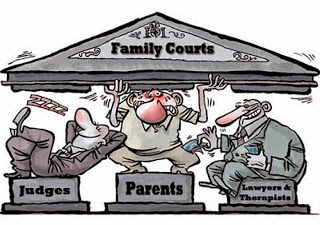

At least 28 federal class action suits in 28 states have been filed in the last two weeks on behalf of non-custodial parents (NCPs). The defendants are the individual states.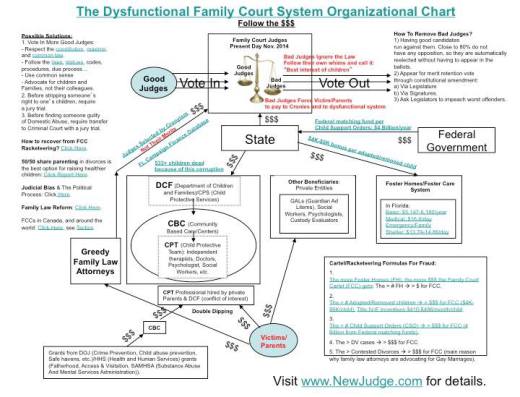
The plaintiffs claim to represent an estimated 25 million non-custodial parents — primarily fathers — whose right to equal custody of minor children in situations of dispute is allegedly being violated by family courts across the nation.
Family law is traditionally a state matter, but the federal government has assumed greater control in the area over the last few decades. Thus, the plaintiffs are appealing to the Constitution, U.S. Supreme Court precedent and acts of Congress “to vindicate and restore their various inalienable rights.”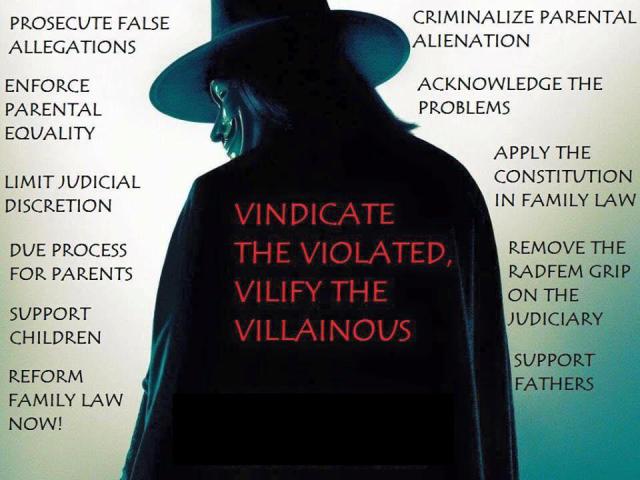
In short, federal law is being asked to trump state practice in custody matters.
According to the suits, state practices appear to be “willful, reckless, and/or negligent fraud, deceit, collusion, and/or abuse of powers” with a “systematic pattern of obstructing, hindering, and/or otherwise thwarting the rightful and lawful conclusion of due process” of non-custodial parents in child custody proceedings.
In particular, fathers protest the widespread practice of almost automatically granting sole custody to mothers in divorce disputes.
The 28-plus class action suits are identical, as any future suits will be. The ultimate goal is for every state and U.S. possession to be represented in one large consolidated action. Indeed, Torm L. Howse — president of the Indiana Civil Rights Council and coordinator of the suits — says that paperwork is under way for submission to the Judicial Panel on Multidistrict Litigation, a legal body which has the authority to transfer such multiple civil cases to a single district court.
If this happens, every single non-custodial parent in America will be represented by the class action suit, which is nothing more than a lawsuit brought by one person or a small group on behalf of an entire class who shares a grievance.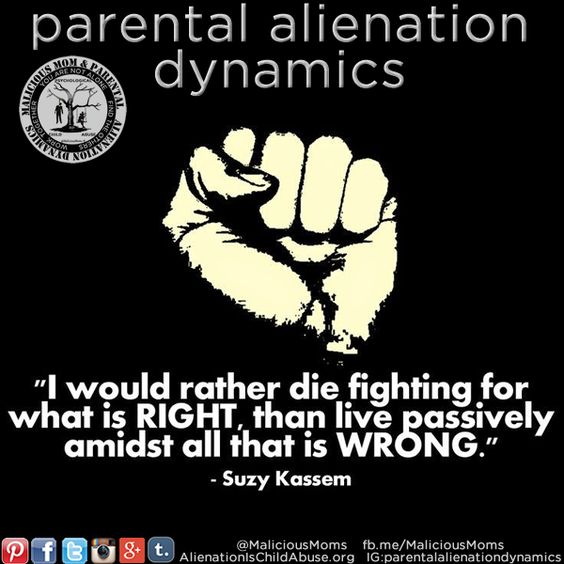
What specific relief is being sought?
The sweeping legal goals are spelled out in a press release. The main relief sought from federal court is the immediate “restoration/elevation to equal custodial status” of all current non-custodial parents against whom no allegations of abuse or neglect have been proven and who have an ongoing relationship with the child.
The establishment of equal custody embraces several other reliefs.
For example, the “prohibition of custodial move-aways of minor children [more than 60 miles] from their original physical residences with natural parents.” Also, the “abolishment of forced/court-ordered child support in most cases.” Support of the child would be borne by each parent during their own parenting time.
The Plaintiffs argue for restoration of equal custody not merely for the sake of non-custodial parents but also for children’s welfare. The press release cites a much-touted study entitled “Child Adjustment in Joint-Custody Versus Sole-Custody Arrangements,” which was published in the APA’s Journal of Family Psychology. The study concluded, “Children in joint physical or legal custody were better adjusted than children in sole-custody settings, but no different from those in intact families.”
In this sense, the suits also advocate children’s rights.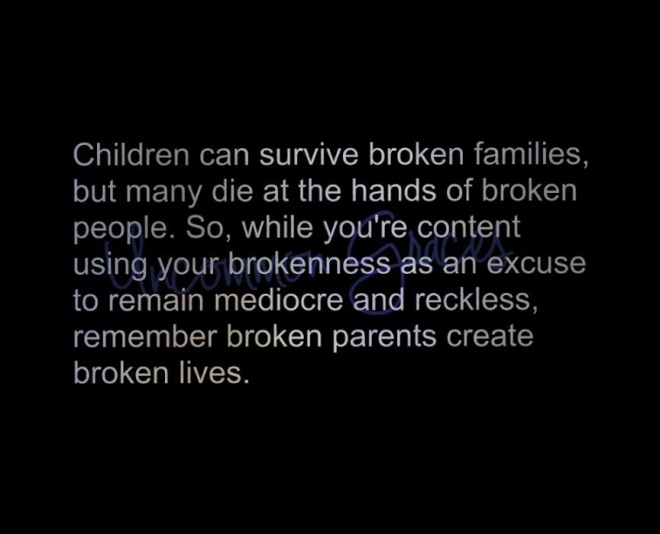
Other reliefs being sought are financial in nature; some of them take the suits into murky areas. For example, the suits ask for “reimbursement” from custodial parents to non-custodial parents of any state-ordered child support that exceeded the “maximum limits of federal law.” This ceases to be an appeal to constitutional or parental rights and instead pits one set of civil law against another, with retroactive penalties being imposed.
In addition, the suits ask for “various damages against the Defendant [the state named] in the aggregate value of $1,000,000 payable per Plaintiff.” The court awards would be “executable upon all monies, property, chattels, assets, goods, pecuniary interest and anything whatsoever of any value” owned or controlled by the State. The suits request that “an appropriate portion” of the award be provided by the liquidation or direct transfer of title of “unused, abandoned, or unnecessary state property and assets.”
The number of non-custodial parent plaintiffs who sign on to a federal class action cannot be predicted but it could run into millions; the collective damages could run into billions or even trillions of dollars. Unfortunately, this gives the appearance of pursuing profit rather than justice.
When asked to elaborate on the amount of damages, Howse clarified, “We are preparing, later this week, to offer proposed settlements that will waive the vast majority of damages, among other things, in exchange for a quick restoral of equal custody rights, a few forms of tax abatements/credits to balance what custodial parents have enjoyed for years and some other basic and related issues, like the setting up of neutral visitation exchange centers, and the like.”
He added, “It has never been about winning large amounts of money from the states … It’s about restoring the lives of our children, and restoring our own lives.”
I genuinely hope the settlements come to pass. Stripped of their financial demands, the suits could go a long way toward removing what I believe to be the worst laws governing child custody in disputed divorce.
At bare minimum, they are raising the profile of an issue that will not go away: the crying need of non-custodial parents, especially fathers, to know their children.
And the equal need of children to embrace both parents.
Wendy McElroy is the editor of ifeminists.com and a research fellow for The Independent Institute in Oakland, Calif. She is the author and editor of many books and articles, including the new book, “Liberty for Women: Freedom and Feminism in the 21st Century” (Ivan R. Dee/Independent Institute, 2002). She lives with her husband in Canada.

 Source: Pledge to make the politicians and media aware of all the knowledge we have of Family Court and Child Protect · Men and Women Should Be Treated Equally in Family Courts. · Causes
Source: Pledge to make the politicians and media aware of all the knowledge we have of Family Court and Child Protect · Men and Women Should Be Treated Equally in Family Courts. · Causes
Pro Se Information
Information for Pro Se filers:
- Representing Yourself Before the United States Judicial Panel on Multidistrict Litigation
- United States Judicial Panel on Multidistrict Litigation Pro Se Guidebook (as of September 2011)
- Quick Reference Guide for Pro Se Filers for Common Filing Types and Deadlines
Below are PDF fillable forms for Pro Se filers to use:
- JPML Pro Se Motion to Transfer
- JPML Pro Se Memorandum in Support
- JPML Pro Se Schedule of Actions
- JPML Pro Se Notice of Opposition to Conditional Transfer Order
- JPML Pro Se Notice of Opposition to Conditional Remand Order
Below are Microsoft Word forms for Pro Se filers to use:


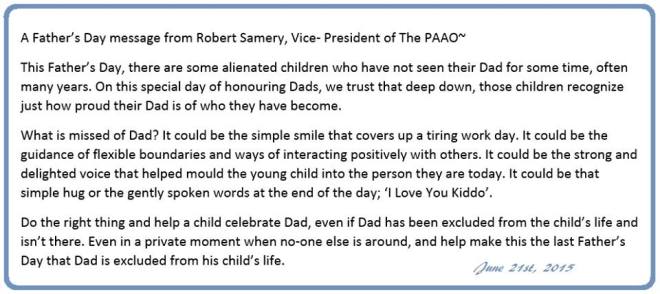
 Judicial Panel on Multidistrict Litigation
Judicial Panel on Multidistrict Litigation










LikeLiked by 3 people
LikeLiked by 3 people
LikeLiked by 3 people
LikeLiked by 3 people
LikeLiked by 2 people
LikeLiked by 2 people